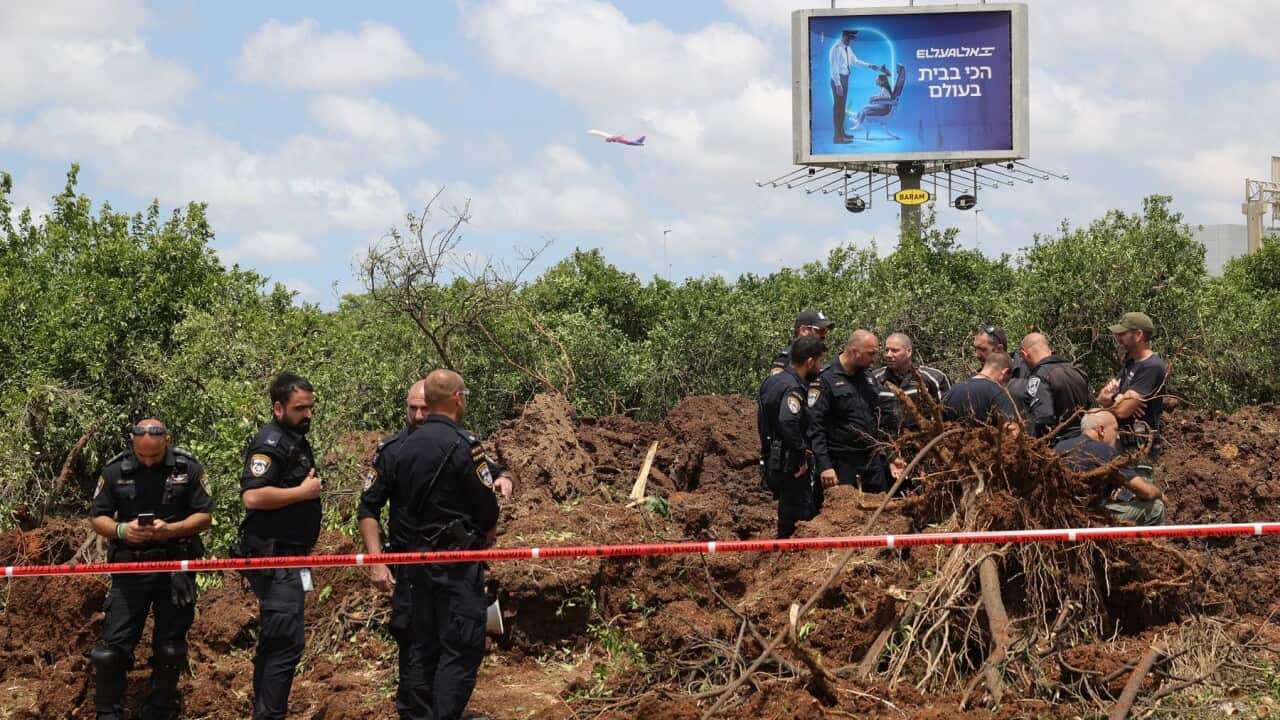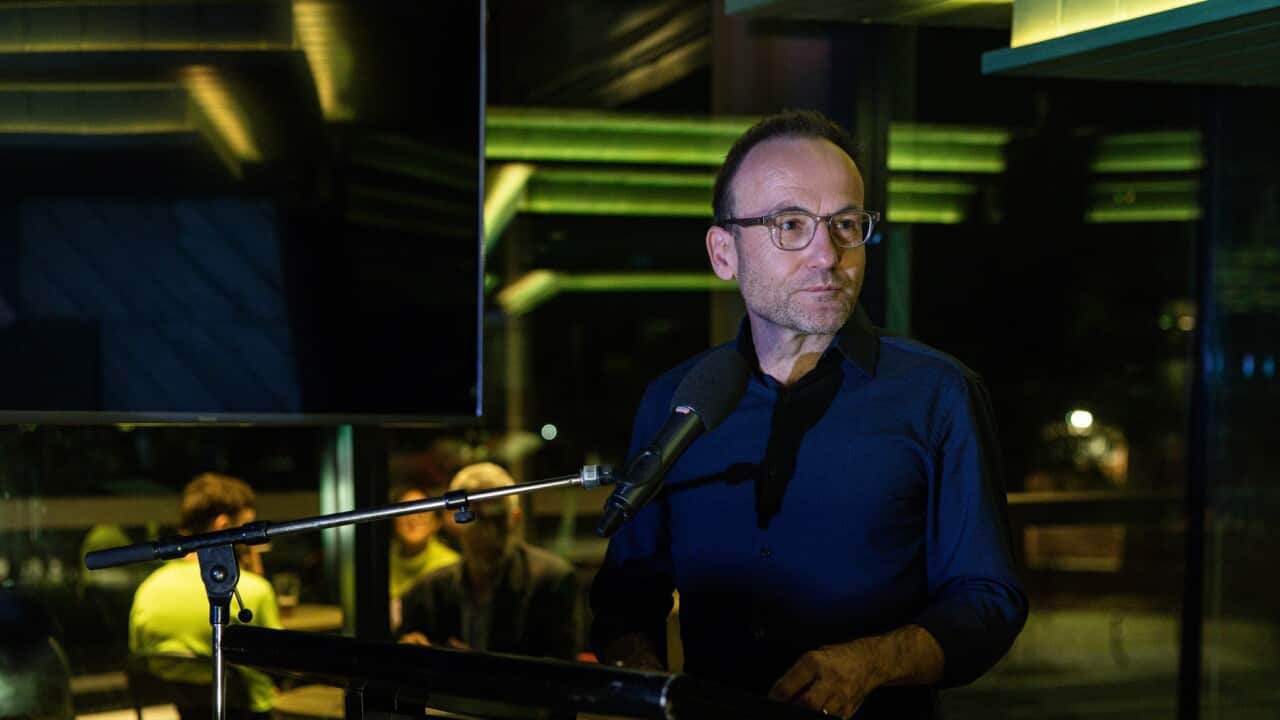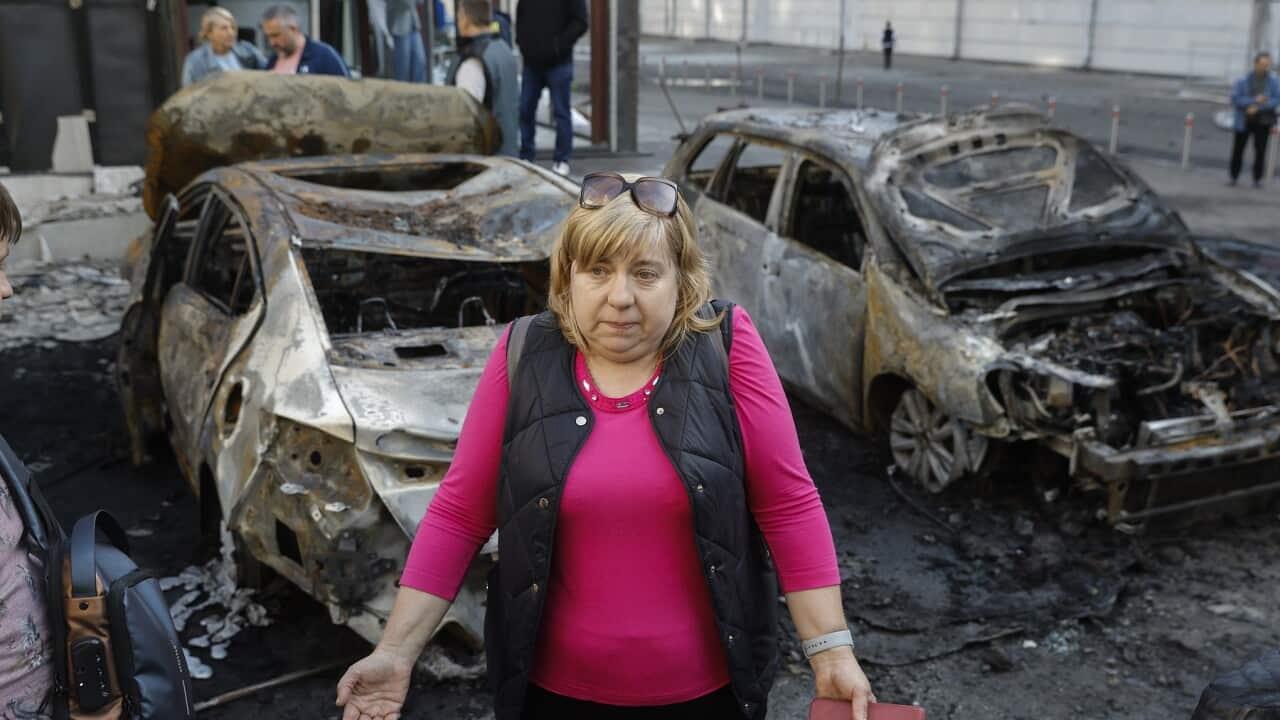TRANSCRIPT
While their country is involved in several ongoing conflicts with its neighbours, it isn't often that Israeli civilians feel this reality on the ground.
But on Sunday [[4th May]], a missile launched by Yemen's Houthi rebels struck near Israel's main international airport after slipping through the country's elaborate missile-prevention systems.
Video shared on social media shows the missile slamming into the ground near Ben Gurion Airport's car park, with shrapnel flying all around, injuring eight people and disrupting flights for over an hour.
PASSENGER 1: "I just found out coming at the airport that my flight was cancelled."
PASSENGER 2: "You do feel like it's getting closer and closer and become personally affecting you, but at the end you get used to it."
PASSENGER 3: "It's a disturbing time, and you know, we understand what's going on, but at the end of the day, life here should go on and we expect the foreign airlines to understand that and continue their flights."
Over the last year and a half of war, Israel has received missile fire from Hamas in Gaza, Hezbollah in Lebanon, the Houthis in Yemen and Iran's military, but its Iron Dome missile interception system has been able to prevent the vast majority of these bombs hitting Israeli soil.
Dr Andreas Krieg, from the School of Security Studies at King's College London, has told Al Jazeera this latest attack is a real shock.
"There was a kind of sense of security that having a ceasefire with Hezbollah and some sort of control over what's going on in Gaza, there was a belief that at least people living within Israel would be safe. And now what we've seen is that several layers of air defence failed. And it also shows how fragile the system is because it could have been a lot worse. And if another projectile has been fired from Yemen and it does hit the runway, hits an aircraft and causes more casualties, it would be very much a catastrophe for Israel."
Yemen's Houthi Rebels were quick to take responsibility for the attack, with a spokesperson saying it's part of a new effort at an air blockade of Israel to complement its efforts at disrupting shipping routes through the Red Sea.
"In response to the Israeli escalation of its aggressive actions in Gaza, the Yemeni Armed Forces announce that they will work to impose a comprehensive air blockade on the Israeli enemy by repeatedly targeting airports, most notably Lod Airport, known in Israel as Ben Gurion Airport.”
Since Israel broke a temporary ceasefire with Hamas in March and imposed a total blockade on Gaza, the Houthis have resumed their attacks on Israel and their disruption of commercial shipping.
In response, Israel and the United States have continued to attacks Yemen.
Israeli Prime Minister Benjamin Netanyahu says he will further retaliate against the Houthis after the Ben Gurion Airport attack, promising to send their backers in Iran a message.
"We will not tolerate it. We will take very strong action against them and we always remember that they act with their patron Iran's direction and support. We will do what we need to do to respond effectively and to give Iran due warning that this cannot continue."
Although Israel and the United States claim to be only targeting Houthi militant sites, a U-S strike on a migrant processing facility last week [[29th April]] killed at least 68 African migrants, according to the Houthis, and injured a further 47.
And in Gaza, where there are no bomb shelters or missile defence systems, the local health ministry says Israeli strikes have killed at least 40 Palestinians in just one day on Sunday [[4th May]].
Prime Minister Netanyahu says he will be convening his security cabinet to discuss the expansion of Israel's assault on Gaza.
The Israeli military has already begun issuing tens of thousands of call-up orders for reservists.
And in Tel Aviv, family members of Israeli hostages like Omri Lifshitz - whose father has now died in Hamas captivity - are calling for the removal of the Israeli Prime Minister and an end to these escalating hostilities.
"The main issue is that the military operation is growing stronger and stronger, and they’re talking about bringing more troops and reserves. We’re really afraid this will kill most of most of the hostages who are still alive and bury the other ones forever."













